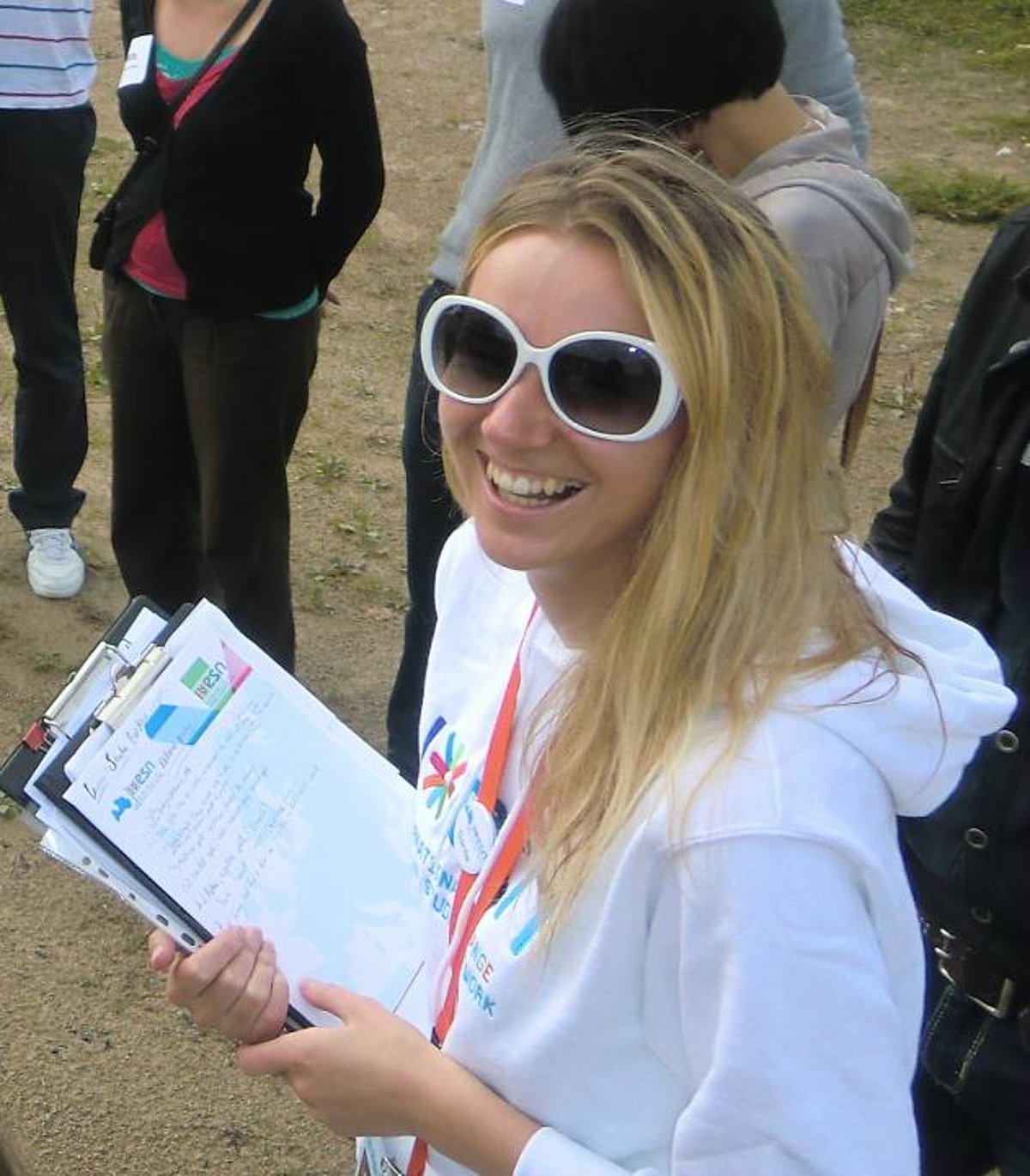
Could you tell us about the activities of ESN-Riga?
“ESN-Riga” is part of an international organisation “Erasmus Student Network” (ESN), the largest international student organisation in higher education. It supports student mobility under the principle “Students Helping Students”.
“ESN-Riga” is a volunteer non-political, non-profit and non-religious organisation that prepares various activities for the exchange students that arrive in Latvia. Those Latvian students who have returned from an exchange period abroad or simply wish to participate are brought into the international environment and organising of activities. “ESN-Riga” also develops international projects in cooperation with the international ESN.
The foundation of “ESN-Riga” is the “buddy” system.
Who is a “study buddy” and how can you become one?
A buddy is a mentor, an adviser, the first Latvian friend to the incoming exchange student who has chosen Latvia as the destination of his/her exchange studies. A study buddy helps the exchange student to accommodate themselves in Latvia for the first weeks by providing practical advice.
Please elaborate on the “ESN-Riga” activities. Can the UL students take part, too?
“ESN-Riga” organises various activities, mainly the ones oriented towards the incoming exchange students. However, other activists are welcome as well. For the exchange students, it organises introductory and conclusion seminars of the semester as well as trips within Latvia and abroad, including Russia. One of the greatest Northern Europe exchange student festivals is the Sea Battle where exchange programme students from Latvia, Estonia, Lithuania, Sweden, Norway and Denmark get together and take part in various activities on a cruise-ship. In the future, trips to other countries of the Commonwealth of Independent States are being planned – Belarus, Ukraine and others.
Various sport activities such as paintball tournaments, the Nordea marathon that we have taken part in for the fourth year and the UL sport games are organised, too.
The target audience of these activities is the exchange students; nevertheless, there are may other activities that welcome anyone interested. These are themed evenings, parties, various festivals – Halloween, St. Patrick’s Day, the Carnival, etc.
In cooperation with the exchange students, cultural evenings are organised, too. Up to now, we have had Spanish, Italian, African and other cultural evenings when the exchange students present the traditions, places to see, as well as dances, dresses and food of their countries and cultures.
How did you decide to take part in ESN and how long have you been working in it?
ESN exists since the year 2008, and I must say that my participation in ESN was coincidental. ESN organised a trip to Tallinn, and I decided to join them. After that I became a member of ESN and I was designated the coordinator of the buddy system – my first assignment was connected with finding 20 buddies for the foreign students. My becoming President of “ESN-Riga” is based on objective reasons. The previous manager switched jobs; therefore, two more people were looked for. At the time I was on the Board of “ESN-Riga” and I was responsible for PR and communication. Two years ago after returning from an ERASMUS exchange programme I became President of ESN.
In the beginning, my main motivation was to practice my English; however, as time passed by, I became more and more interested in the essence, goals and activity of the ESN organisation. That is why I still participate actively in it.
Is there an ESN event that stands out in your memory?
It was actually a funny occasion. On the back trip from Saint Petersburg, in the middle of the night as we were crossing the Latvian-Russian border, our bus broke down. First, the driver gave us an optimistic prognosis – we would have to wait for 2 hours. Of course, in reality we had to wait for a much longer time. The exhausted exchange students felt like sardines packed in the limited space on bus. I think that those students will never forget that trip either.
What has been your experience like with ESN?
This type of experience is invaluable – skills of practical management, organising and time planning; of course, a better understanding of how to protect the interests of students at the European Commission. I have also established new contacts and met fantastic people from all over the world. I can assure you that ESN is part of my life and working in it changed my life significantly.
Undeniably, ESN is hard work that requires time and also sleepless nights, but it is definitely worth it! A student’s “Thank you!” for an unforgettable semester in Latvia owing to ESN when they say goodbye to me on their last semester day is the best reward I can imagine.
Translated by students of the professional study programme Translator of the University of Latvia.
Translated by students of the professional study programme Translator of the University of Latvia.

 CONFERENCE
CONFERENCE